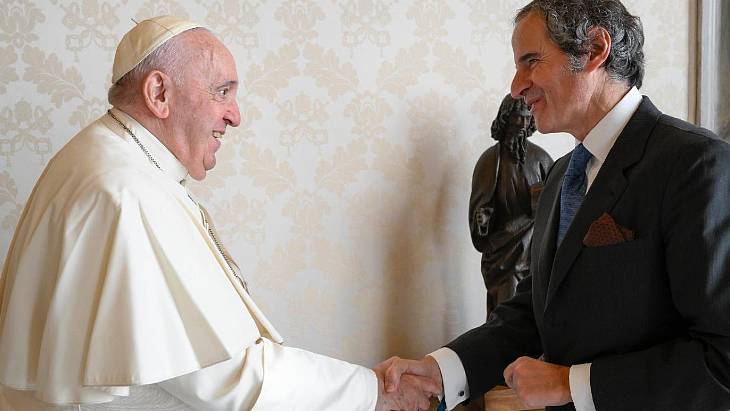In an interview with Vatican News, Grossi said: "Obviously, it is not an easy negotiation because it is an issue that involves technical and also political and military aspects ... the negotiating table has become bigger - I don't just talk to diplomats, to political leaders, but also to the military: generals, colonels, people who have military objectives in an active combat zone."
He said the challenge was to get to the point where having a protection zone at and around the six-reactor nuclear power plant was seen "not as a problem but as a solution to any more serious consequences". He added that "right now there is a lot of talk about territorial, perimeter aspects, which are the concerns of the militaries of the two sides".
Grossi added: "I have made progress. Next week I will be in Ukraine again, the fifth time since the beginning of the conflict, to continue this round of negotiations. After that it is not confirmed, but I think it is possible to go to Russia as well."
The Zaporizhzhia nuclear power plant is the biggest in Ukraine and Europe. It is on the frontline of the war and the site has been damaged by shelling on a number of occasions, It has also lost power supplies on occasions and had to reply on backup diesel generators to supply the power required for essential safety functions.
During the talks with Pope Francis, who is head of state of the Holy See, which is an IAEA member, the IAEA said the two men "discussed the potential of nuclear science and technology in addressing the worsening global climate crisis" as well as the multilateral efforts to avoid proliferation of nuclear weapons. Earlier this week the Pope said it was "immoral" to possess nuclear weapons because "there is no denying that the conflagration could be started by some chance and unforeseen circumstance".
Asked by Vatican News about those comments, Grossi said some countries were thinking now was the time to develop nuclear weapons, but, he said: "If there is one thing that is clear - the Holy Father, the Church have said it - it is that nuclear weapons do not provide security: it is the opposite. It is the opposite. And this must be said. We must have the patience and the ability to convince states, and that is not easy."








_97013.jpg)






